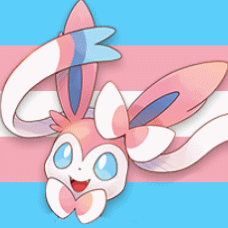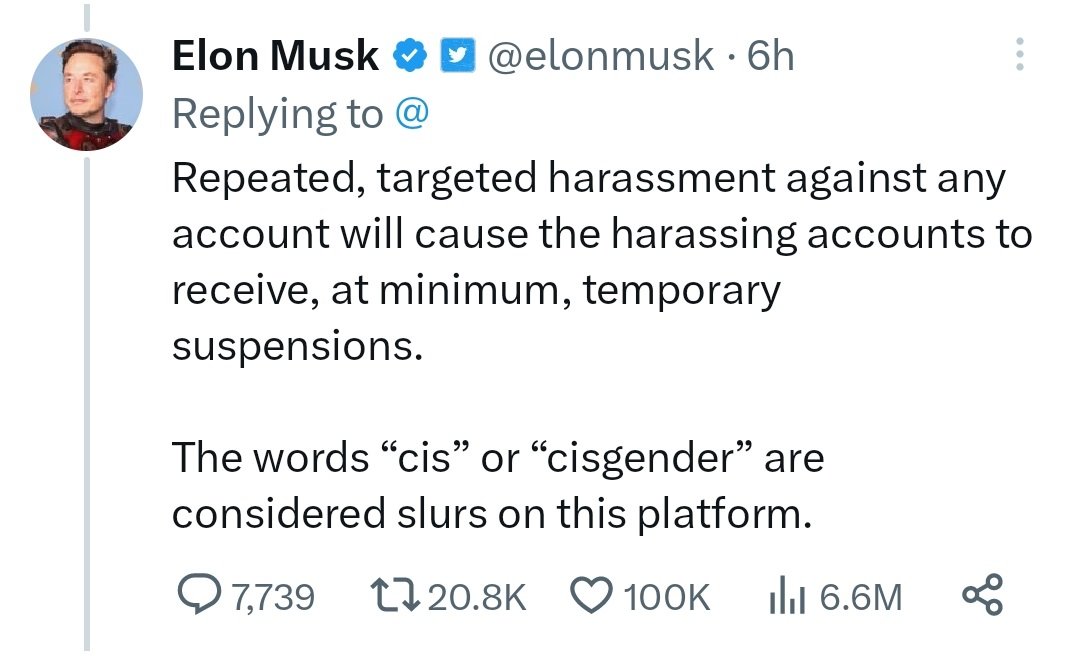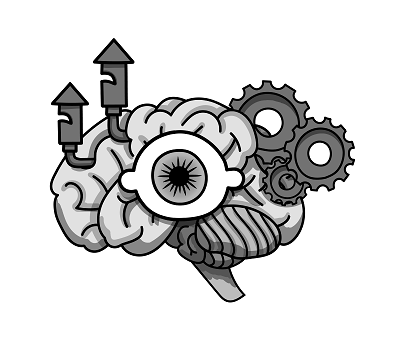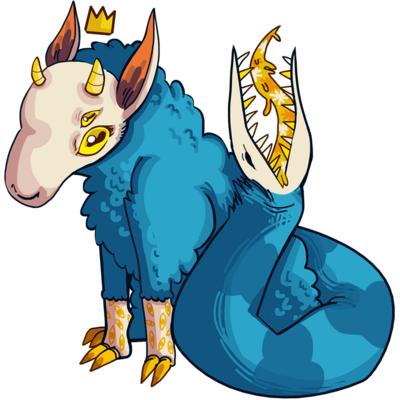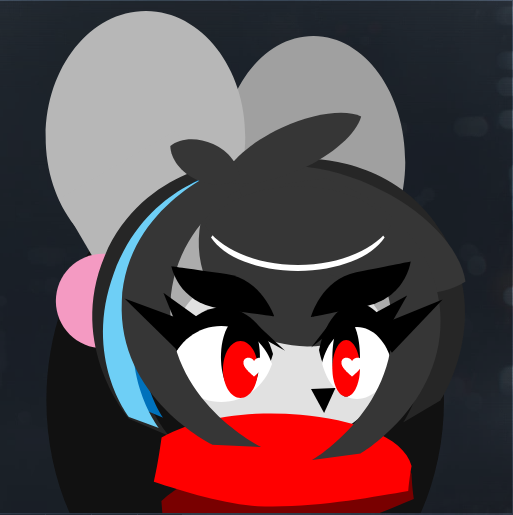People feel that “cis” is a slur because it puts them on equal footing with trans people.
They prefer to consider themselves “normal” while “trans” people the weird ones whom can only be labelled with anything other than “normal.” Being called “cis” makes them feel as if they can also be labelled as something other than “normal.”
Similarly, one cannot be “straight” without acknowledging existence of same-sex attraction, so people uncomfortable with that won’t describe themselves and expect everyone to assume they’re “normal”. These people don’t teach kids to say “they are straight”, they prevent them from obtaining any knowledge about human sexuality at all to avoid even the possibility of admitting “exceptions” exist
As non-trans person, I can partially confirm. First time when I heard it, my reaction was “why do you need a new word for that?” Now I kind of used to it, but still there is some amusement each time I hear this word - it seems unnecessary, when “non-trans” would suffice if needed to avoid confusion. But slur? That’s nonsense is only in Musk’s head.
deleted by creator
If we are talking about sociology journals, then yes, I agree, cis is the right term. If we are talking about general use, like in newspaper, then there is natural reaction of bewilderment - why would you need this term? Please understand that most of the people (me including) do not meet/do not see trans people in their lives (at least they do not know they are trans). I personally know exactly zero of such people. So, the world from the point of not-trans person looks very different - they read about trans people on internet and in the news, it is rare phenomenon, that is not even observed by them personally. That’s why it seems as really unnecessary world. Do you have a special word for non-albinos or for non-red-heads? And those (albinos and red-heads) they see in their life more frequently.
And here is where insisting and pushing this word on other people comes at disadvantage to trans community - the right will use any opportunity to use bewilderment of non-trans people to propagate whatever stereotypes they want to propagate about trans. They will say that trans people are “forcing” other people to call themselves “cis”, and that this is derogative term, and nobody likes to be forced to do something like that.
deleted by creator
To be fair, “cis” comes from latin which means “on the same side of,” in contrast to “trans” which means “on the other side of.”
Why use that instead of non-trans? I don’t know, but yeah, I don’t think the word is a slur.
It’s not an eiher/or. E.g. non-trans could also be non-binary. So cis is more specific and leads to more inclusive language and thinking.
English loves antonyms.
deleted by creator
You can always use the word “non-trans” if needed. But insisting that all others (who are like what? 98% of people?) have to have a special word for this is strange. It is like insisting that non-albino should be a special word.
And importantly, asking for some kind of special status for cis people so that it requires a special word, as if it is important and fundamental to split people into these too groups, as oppose to being trans is just one of the many features of human being, somewhat rare, but not something to be so important that not being trans must have a separate word. By insisting to have a separate word you are moving away from acceptance of trans people.
And while I do understand that in today’s society with many bigots it is sometimes difficult and important process of “coming out” and admitted that you are a trans, thus, indeed, for a trans person, today, it might be the most important thing in their lives, their identity. But in ideal society it just should not be so. So what that one person is trans, and another is albino, and yet another is red-hiared? Nobody should think twice about these variations of humans. I mentioned. I want to move towards ideal society, not away from it.
deleted by creator
I just love how utterly obtuse the TERFs sound when they say “Trans women are not a subset of women, and cis is just a slur, women are women and trans women are not” or similar, like honestly, the terms are all very simple, tall women are a subset of women, brown women are a subset of women, infertile women are a subset of women, and they are all women. They are just bigots who don’t want trans women to be part of that group, they want to exclude them. It is just hatred and bigotry, the symantics are just a cover.
brown women are a subset of women, infertile women are a subset of women, and they are all women. You’ll probably find that a significant percentage of TERFs would disagree on those 2 points in private…
Lol, absolutely! Bigots gonna bigot, best we can do is not fall for it and be kind to each other.
TERFs brazenly use their own slurs, TIF (trans-identified female, aka a trans man) and TIM (trans-identified male, aka a trans woman). They don’t care at all about respecting each person’s chosen terms, they only care about ideology and enforcing their viewpoint.
I’m very frustrated by the apologists saying, “well, cis people don’t necessarily identify with that term and we should respect that”. It’s not so simple, what term would they like us to use instead? They never offer one. They want the absence of any term, because they want to enforce an ideology where only they are normal. So they can make up any mean words against trans people that they want, but we can’t even factually describe them with a neutral term?
It infuriates me when cis people say this. It comes from such a place of priviledge.
Why do I go to the comment sections of articles like this? Why do I punish myself?
Bigots are gonna bigot. My willpower is strong today so I avoided that particular torture.
If we can’t call Elon cis, can we instead call him a pathetic little manbaby?
We can do that and call him cis!
Yeah it’s bad in there.
What a perfect example of “when you’re accustomed to privilege equality feels like oppression.”
This further validates my decision to leave Twitter. Musk is a fucking piss baby.
Welp, this is my first time hearing about this whole Twitter debacle so this is just great. What a way to end the night.
Appreciate the author for the thorough overview, though. Thanks for sharing this.
A well-done unpacking.
I’m bi, and cis does feel kind of weird. Wtf does it even mean? I’ve never felt good about the term.
@LootGoblin42 @UngodlyAudrey As a root word it means “on the same side as” in the same way trans- means “on the other side from”. Do you know what makes you uncomfortable with it?
This is the same etymology as Transylvania, or, the Forest on the Other Side.
This begs the question, where is Cisylvania?
You might consider cisalpine gaul and transalpine gaul. Regions where the Gauls lived either on “this side” (the Italian side) of the Alps, or the France side.
Transylvania doesn’t mean “forest on the other side”. It means “on the other side of the forest”. In this case on the other side of the forest from Hungary. So Cisylvania is Hungary.
Damn, I knew I should have looked it up to be sure first. At least we’ve discovered Cisylvania.
I don’t know. I’ve just always felt like it was weird to come up with a term for “normal” people. I don’t understand why it was necessary. Maybe it’s just me, and maybe I’m getting old, but I don’t understand the obsession with labeling everyone and putting them in a well defined box. Sometimes I like to dress in girls clothes, but I hate the term “cross dresser”. Can’t we just be ourselves without all the labels?
@LootGoblin42 Well, the point is that cis people aren’t the “normal people”, just like straight people aren’t the “normal people”. Trans people, gay people, bi people etc aren’t abnormal even if they’re statistically fewer.
Would you also object if white people didn’t like being called “white people,” and preferred the term “normal people” instead?
That’s a really good way of dealing it 👍
I don’t know. I’ve just always felt like it was weird to come up with a term for “normal” people. I don’t understand why it was necessary
Would you be fine with a straight person saying “I’m not straight, I’m normal” then?
Or would you realize that by choosing one aspect of the human experience to label as normal, instead of actually having a name for it, you are automatically labeling the others as abnormal — which means they’re not just a naturally-occuring human thing, but something that’s disordered or wrong or unnatural? If you decide to label being trans, but just call cis people “normal,” then that’s the implication.
Moreover, “cis” is a label for understanding a way of identifying regarding your assigned gender at birth, same “trans.” I really don’t see how it makes sense for it to be okay to have a word for one option — trans — but not the other. If it’s okay to have a label for one option so we can accurately communicate about it, why isn’t it okay to have a label for the other one, just because it’s more common? That doesn’t make sense. We have labels for all sorts of common things. Moreover, having a word that designates someone as not-trans is extremely useful for linguistic clarity: now instead of saying “normal” and having to infer from context in what respect the person is “normal”, since that could refer to a million things, cis gives us a way of actually saying what we mean. Scientists label both common and uncommon options for things all the time.
Maybe it’s just me, and maybe I’m getting old, but I don’t understand the obsession with labeling everyone and putting them in a well defined box… Can’t we all just be ourselves without the labels?
This talking point always hurts me deeply. Taking away the words and concepts we use to understand ourselves and communicate with others about that, find common ground and community and understanding, is the perfect way to erase us. That’s why conservatives and TERFs so often say the same thing.
Unlike for conservatives, labels for the LGBTQ community aren’t about putting everyone inside a well-defined box at all. Unlike conservatives with their traditional gender roles and expectations, our labels are actually not rigidly defined like that, they’re fuzzy, socially constructed, often with multiple shades and versions of meaning and ways they can be understood. Neither are they supposed to be normative — if you associated with a label once, that doesn’t mean you have to always do so (or have to have always done so), and if you don’t perfectly fit a label, that’s totally fine, you don’t have to “live up to it.”
(Except, I guess, in terminally-online Tumblr “discourse.”)
And the fact that labels, at least how the queer community uses them, are not “boxes to put people in” is a function of how we use them: they’re crucial tools to be able to communicate aspects of the incohate mess that is our experiences to others, and therein find community and solidarity with others, to know you’re not alone because there are others that share those experiences, who can comfort you and even guide you, and so you can use those words that helped you make people able to finally understand you as a rallying point.
We need the words to describe ourselves.
Taking away our language, the language we need to explain some important part of who we are or the lives we life, is fucking horrible.
Do you know how painful it was to grow up without labels like trans and cis so I could understand what was happening to me and why I was different from others? The first moment I found a word that seemed to describe what I was feeling, even though it was a wrong one (crossdresser), I clung onto it desperately. And then, when I finally found the word to describe what I actually was, it was a watershed moment.
Have you stopped for a moment to listen to the queer people who will tell you that finding out there was a word to describe what they were going through was one of tbe most powerful moments in their lives? Remember, without words for things, its difficult to have concepts for things, and that means its almost impossible to think them.
Should there be a word for ‘white’ or ‘straight’ or ‘monogamous’? Should there be a word for ‘able-bodied’, or ‘hearing’, or ‘sighted’?
I had this same feeling towards CIS… Someone explained it to be as why the word is important. The mentality is “I’m not cis, i’m just [normal] straight.” But what that implies is that trans is abnormal. You shouldnt have one term that has a connotation of being normal and the other with a connotation of being abnormal. Both should be explained in a way that gives equal credibility. Thus we have Cis to equalize the term on the same grounds as trans, bi and etc.
I’m still a little weird because I feel that’s not my term for me but “their” term for me which is insulting on a level somehow. But I acknowledge it’s a strange situation and cis helps bring parity to the situation.
The way he acts makes me I wish I didn’t need Starlink. I don’t like giving him my business.
If a trans person didn’t want to be called trans for whatever reason would it be reasonable to continue using that term to describe them?
By most current definitions, if a person claims not to be trans they are not trans and by default that means they are cis, regardless of other things; what you would probably mean is something like a person that obtains a gender affirming care not matching their gender assigned at birth who also objects to being called trans, and obvious cases when cis people do that are eg prescribed usage of puberty blockers to slow down puberty of cis kids, or breast reduction for purely aesthetic reasons. As such, the care received is distinct from identity (today we broadly define trans as people who do not feel comfortable with gender role/expression/identity assigned at birth).
There is a gray area of people that are doubting, exploring, fluid, and non-binary and will call themselves “not cis but not sure trans applies” and that’s also fine and follows from contextual usage of these terms. A possible individual’s explanation: a non-binary person that presents more like the opposite sex than assigned at birth (therefore matching the above definition) but otherwise not sharing social experience with most trans people so they don’t want to be called trans even though they are not cis by the above definition. This is however much more specific, individual, and nuanced discussion that happens around the tweets.
The key here is, many words have multiple very contextual definitions and usage patterns and are deeply anchored to different social norms. That’s why there’s so much emotions around questions like “what does being a woman means?” even in purely cis feminist world (it also comes close to other linguistic/philosophical discussions, like Wittgenstein’s “game” - can you clearly define “a game” and contrast it with say “a toy” to make these distinct? What about “a sport”? Vegetables as more taxonomical concept and more culinary concept?) That’s why we ask for precise language: I may be non trans but receiving HRT. I may be a woman legally and experience both misogyny AND privilege from presenting “manly” and having “manly” professional image.
Some people feel like this needlessly muddles things because they claim “they know what the words mean and there’s one definition and languages do not change unless dictionary publishes a new definition”, but honestly, they either have not thought things through, not met enough diverse people, or follow a bigoted agenda".
But again, this is too nuanced for the tweets; the simple answer is “unless there’s a specific other context that forces a different definition, you either claim to be trans, or you’re cis”.
To be fair, as a cis white male, I use cis white male as a slur quite regularly. Right up there with dusty white folk.
If a slur is simply ‘to talk about disparaginly or negatively’ then that is exactly how I was using it and I don’t regret it. (I got the definition from the second definition of the google first result but from duckduckgo not google.)
Does making the negative generalizations about cis white folk like myself make me a bad person? Probably. Is it going to stop me? Probably not.
It certainly isn’t stopping them from dropping N-bombs, or other slurs. Talking shit about people who are just trying to live their lives. Interfering with people who just want to fucking exist in peace.
Am I stooping down to their level? Certainly.
Do they deserve it? Yes.
Should I be bothered that I’m not taking the high road? Not turning the other cheek? No.
These fucks aren’t going to learn unless you slap them in the goddamn face with it. Bigotry hurts. They deserve to hurt. Maybe they’ll learn, maybe we’ll learn. Maybe we won’t. At least it’s justice. I am a cis white male.“to talk about disparaginly or negatively” is the verb form of “slur”, the noun form is a little bit different. You can slur Elon Musk by calling him a privileged phony, but that doesn’t make “privileged” or “phony” slurs themselves.
A more fitting definition of “slur” in the sense that it is used here is “a derogatory or insulting term applied to particular group of people”. “Cis” is not a derogatory term, just like “trans”, “white”, or “Black” are not themselves derogatory terms. You can probably imagine some actual slurs that apply to each of these groups (tbh I’m having a hard time thinking of one for “cis”), but I don’t intend to write them out here.
